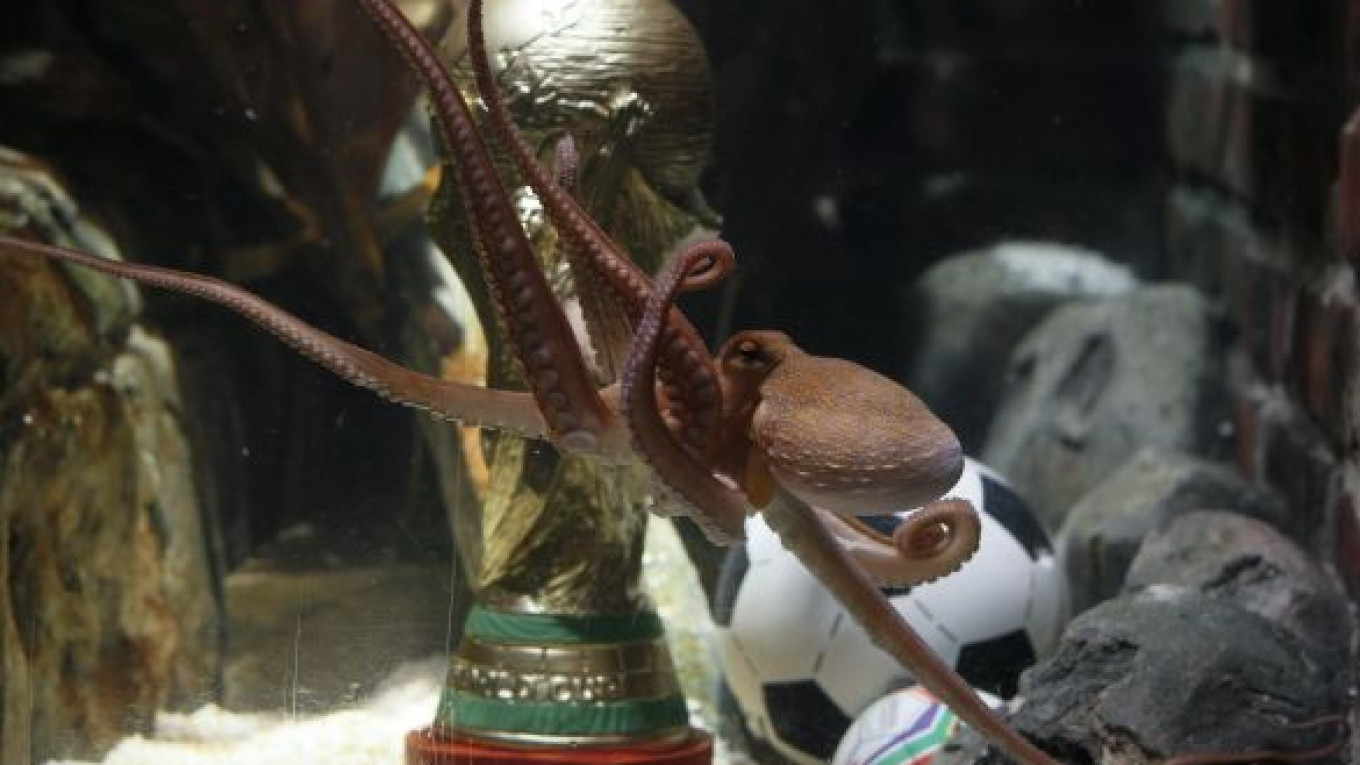Komsomolskaya Pravda said Friday that it had managed to get Paul, the oracle German octopus that accurately predicted the World Cup results, to forecast who will be Russia's next president.
But shhhhhh … The newspaper said the results of Paul's prediction for the 2012 presidential election have been sealed until election year.
Komsomolskaya Pravda said one of its reporters approached Paul, who lives at the Sea Life attraction in the German city of Oberhausen, and put two sheets of paper with the names of Prime Minister Vladimir Putin and President Dmitry Medvedev in front of the soothsaying invertebrate, which pointed to one of the names with a tentacle.
Since Medvedev replaced Putin as president in 2008, it has been unclear who is the No. 1 decision maker.
A recent poll conducted by the independent Levada Center indicates that 76 percent of respondents believe that Putin is the country's most influential person, while 67 percent see Medvedev as the top leader.
Both politicians have said they are considering running for president in 2012. In April, Medvedev said they would decide together who is going to run. Putin said in June that they would talk about it closer to the election date.
Paul the octopus became famous for accurately predicting the outcome of Germany's World Cup campaign and the World Cup final between Spain and The Netherlands.
His Russian presidential pick has been conducted in a fashion rather different to his World Cup prognostications, where he predicted football matches by picking food from two different transparent containers lowered into his tank, each adorned with the flag of one of the match's competitors.
Komsomolskaya Pravda also featured a short "interview" with Paul.
A Message from The Moscow Times:
Dear readers,
We are facing unprecedented challenges. Russia's Prosecutor General's Office has designated The Moscow Times as an "undesirable" organization, criminalizing our work and putting our staff at risk of prosecution. This follows our earlier unjust labeling as a "foreign agent."
These actions are direct attempts to silence independent journalism in Russia. The authorities claim our work "discredits the decisions of the Russian leadership." We see things differently: we strive to provide accurate, unbiased reporting on Russia.
We, the journalists of The Moscow Times, refuse to be silenced. But to continue our work, we need your help.
Your support, no matter how small, makes a world of difference. If you can, please support us monthly starting from just $2. It's quick to set up, and every contribution makes a significant impact.
By supporting The Moscow Times, you're defending open, independent journalism in the face of repression. Thank you for standing with us.
Remind me later.


